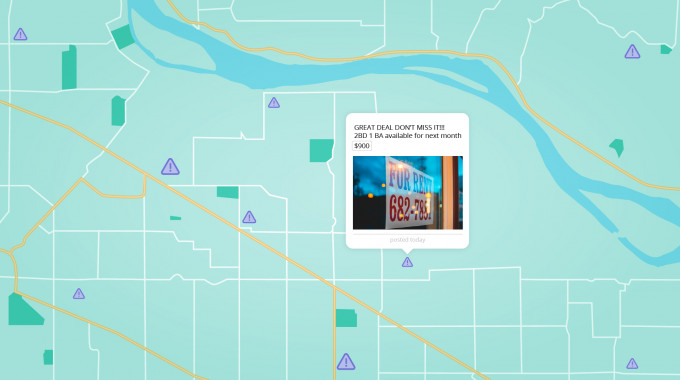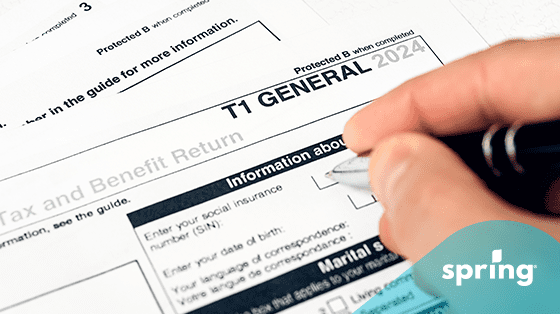The summer season typically has a rise in these scams, as students prepare to leave the nest and find accommodation for the fall semester, but that doesn’t mean you shouldn’t always be cautious. We’ll show you how this scam works, and how you can make sure you’re not its next victim.
How the Scam Works
Basically, these rent scammers are taking photos of properties that are already online, on housing sites like MLS or realtor.ca, and using those photos to create fake rentals ad. They usually offer the rental well below market rates to attract interest, making it one of those “too good to be true” scenarios.
When curious tenants start inquiring about the ad, the fraudsters will likely give suspicious reasons why they can’t meet you in person. For example, they are “out-of-town” and unable to show you the vacancy. The fraudsters will then ask you to send them a security deposit or the first month’s rent via wire transfer. They might even pressure you by saying other applicants are interested in the property. Sometimes the scammers will entice you with a discount if you send more than the first month’s rent.
The money requests are usually to be transferred via MoneyGram, Western Union or even a gift card. But once you send that money out of the country – say goodbye because it will be virtually impossible to get back.
Rent Scams on the Rise
According to a recent report, an Ontario man had his home unknowingly put online by rent scammers using photos of his property, which was in the process of being for sale. Would-be tenants began knocking on his door asking about the property and one even said they already sent a $1,000 deposit.
It’s all part of a disturbing trend of rental scams taking advantage of tenants looking for a home. The Canadian Anti-Fraud Centre says that Canadian have lost $1.4 million in the last three years to these online rental scams. The Better Business Bureau claims that 50% of those looking for a rental home will likely encounter these types of online scams on sites like Craigslist, Kajiji and Facebook.

5 Red Flags of a Rental Scam
- The first red flag to watch for is the price. If this is a nice property, way below the market rate, it could be a scam. Of course, it could be a great deal too, but make sure you should investigate it thoroughly.
- The “owners” of the property say they are out of the country, or out of town. Remember: it’s highly unlikely a landlord would list a rental and then leave town.
- If the listing’s photos are vague, and only show the outside of the property, it could be a scam. A good landlord will post quality images of the inside and outside. And if you see a “for sale” sign in the photo, you should probably avoid it.
- Any requests for security deposits or first-month instalment, without a formal rental agreement, should be met with deep skepticism, especially if it’s through a wire transfer like MoneyGram or Western Union going outside the country. Gift cards are another major red flag.
- If the alleged owner wants to communicate with you outside the rental platform or direct you to a website asking for personal or financial information, then you should turn and run away (virtually).
How to Stay Safe from Rental Scammers
Searching for a rental home can be challenging on its own without having to deal with scam artists trying to steal your money. Here are some tips on how you can protect yourself from these online vultures.
- Research the property in-person, if possible, and insist on meeting the landlord at the address. Take the time to visit the rental listing and see if it’s accurate and truthful to its online ad. If you cannot see it in person, ask a friend or family to view it for you.
- Double-check the address isn’t being used elsewhere online. Google search the address to see if it’s been used in a duplicate post, or reverse image search the photo.
- Request a lease or contract before you consider sending a deposit. Review it thoroughly and make sure it is legitimate.
- Know your rights as a tenant. The Government of Canada provides information on the rental process and which provincial housing ministries you should be aware of. Also, you should contact the Canadian Anti-Fraud Centre (1-888-495-8501), the RCMP or your local police if you have information about this type of online rental scam.
Related Articles
- Online Loan Scams To Lookout For: Payday Loans, Advance Fee & More
- Scam Phone Calls In Canada: How To Identify Them & Protect Yourself








